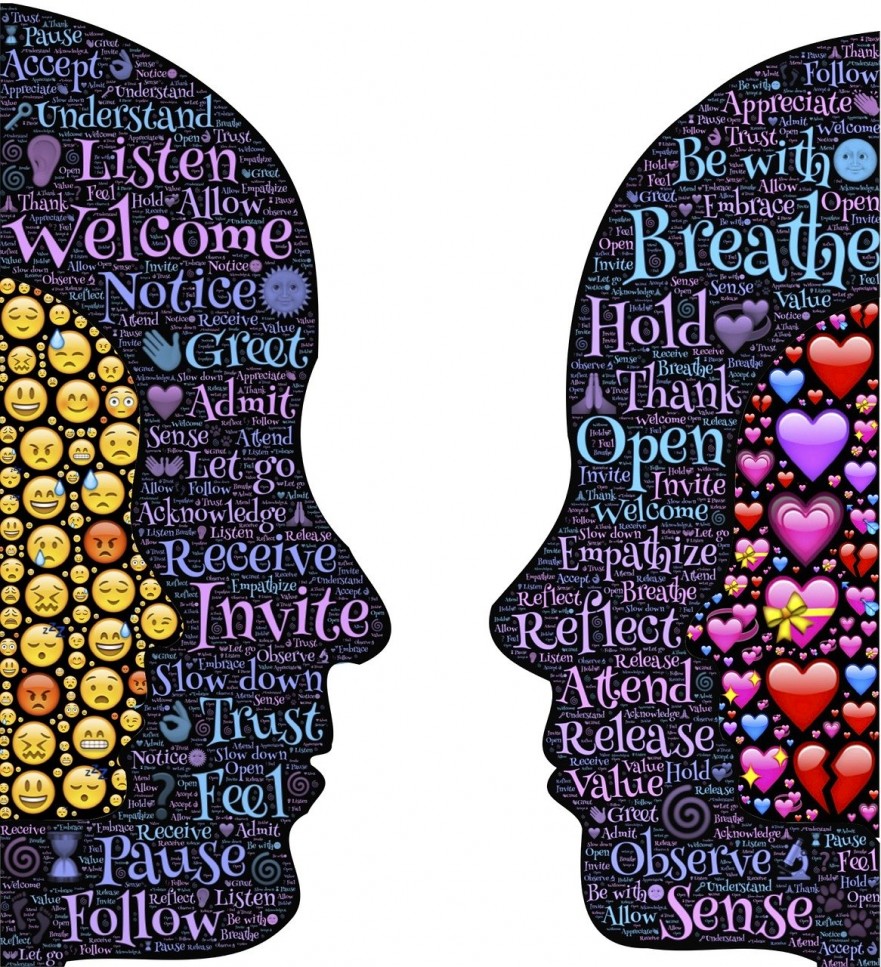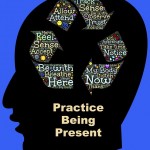Jamie Valderrama works as the Undergraduate Coordinator for the Integrative Health Initiative and as a lecturer for ASU. She has developed curriculum, taught stress management courses, and now oversees 40 sections of stress management courses at ASU each semester. Prior to that, Jamie was a high school science teacher and student leadership advisor. She was named as Ambassador of Excellence for the work she did as a teacher in 2010. Jamie began studying how mindfulness and meditation could help her Advanced Placement students feel more supported and prepared as they went into testing season. She wanted to know how she could integrate holistic therapy with her anatomy and physiology classes, and soon she was conducting keynotes and national and international workshops focused on mindfulness. What was a spark of an idea for Jamie has turned into a movement.
I met Jamie when I was a student council advisor, and she was leading a breakout session for students about mindfulness. It was the first time I had heard about brain functions and what happens as brains are stressed. I was enthralled. I asked Jamie to come speak to my entire school district, and she did. Jamie also worked with my daughter who was in student council and is now one of Jamie’s students at ASU.
Jamie’s latest project is a collaboration that focuses on stress management for K12 educators called Survival Guide for Teachers. I reached out to Jamie to talk more about the project and why there is such a need for self-care for teachers at this time. Here are some of my top take-aways.
- Teachers are suffering from vicarious trauma and compassion fatigue in higher numbers because students are experiencing more trauma. Teachers are picking up on students’ trauma.
- Teachers need an integrated approach to equip themselves with the tools necessary to empower themselves and support students.
- The Survival Guide for Teachers features one tip per week about a different tool as well as stories from the field. The program also offers opportunities for speakers to come out to schools.
- Our physiology affects our psychology. When we experience events that cause a reaction, it is important to understand that our brains are no longer working normally. Stress decreases our ability to communicate and make decisions. Taking a minute to breathe is extremely important to regulating our brains.
- Teachers can’t give what they don’t have. They can’t pour from an empty cup. Both teachers and students have to work to practice self-care in order to be successful.
- Creating a safe and secure environment within a classroom is essential for students to learn and teachers to teach. Environment starts with relationships.
- The Calm and Headspace apps have deals for teachers that allow them to gain access to meditations for free.
As a teacher and administrator I have had times where I have been negatively affected by the events that happened in my classroom or at school. I always explain to people that a teacher’s brain never turns off. You are always worried about the student who is struggling, a hard conversation you are going to have to have with a parent, how to meet the needs of those who you just haven’t been able to reach out to, how to get your 5th period class to simply be kind to one another. A teacher’s head is swimming with ideas. It is time that we acknowledge that in many cases, we are first responders to traumatic events, and that has an impact on who we are and how we do our work.
I am thankful educators like Jamie are working to support other educators and are teaching them how to care for themselves so they in turn are able to care for their students.










Comments 2
Great piece with some great reflections and resources. I will definitely be checking these out. I had never heard of Compassion Fatigue until a few years ago talking with a friend who is a counselor. She couldn’t believe that I had never had training about Compassion Fatigue. I wish that more districts were talking about this using these terms and providing training that is more practical. I wrote a bit about Compassion Fatigue and the idea of positivity to counteract the strain in this blog for anyone wanting to check out more and continue the conversation: http://www.storiesfromschoolaz.org/compassion-fatigue-positivity-solution/
This is a great topic and thanks for sharing the resource. I once heard and expert in social work say that unless you see visible, tangible results in the work you do for others, it’s almost impossible to sustain your emotional balance and not burn out. As teachers we often do see those things, but still need resources and tools to keep our edge.